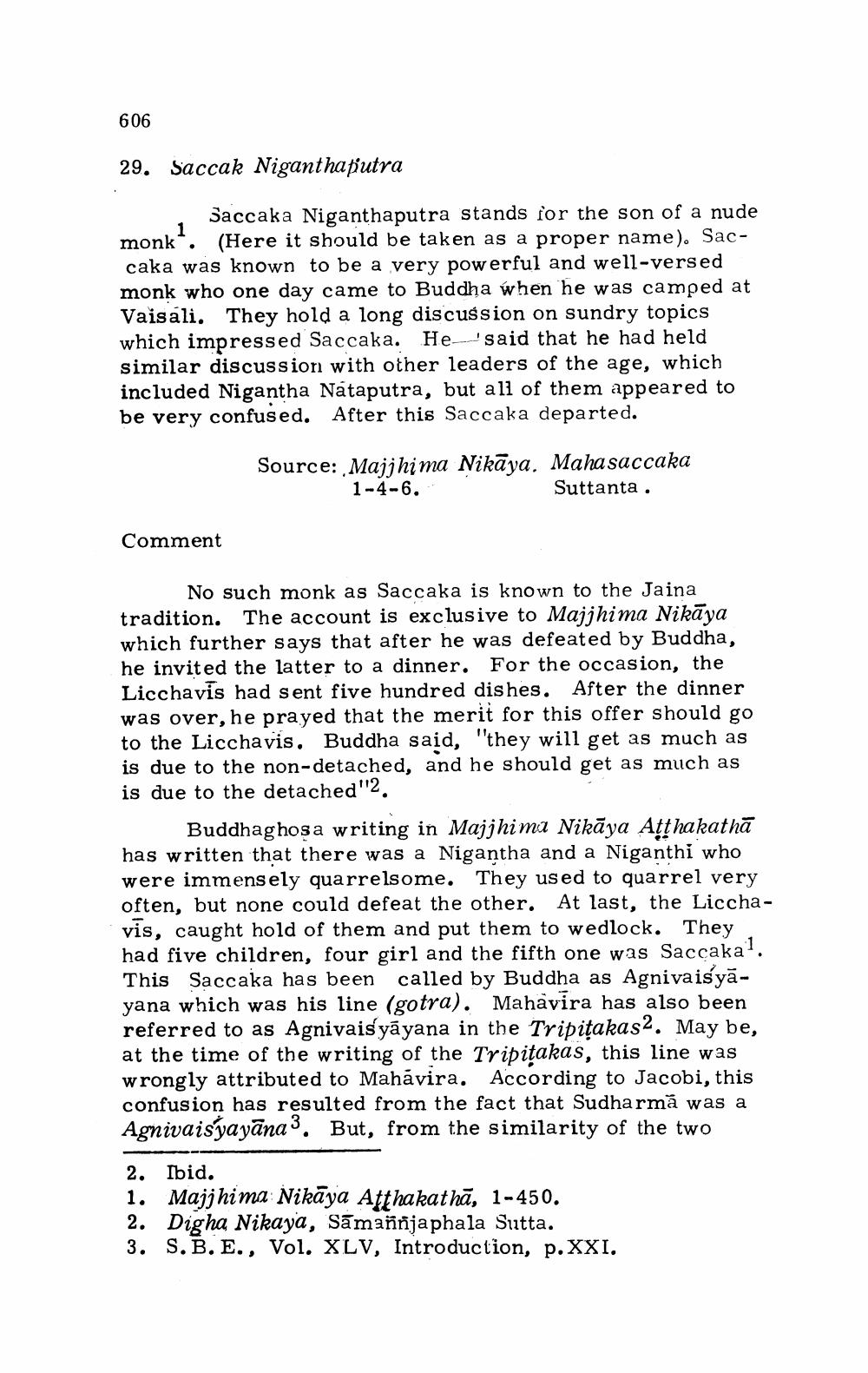________________
606
29. Saccab Niganthaputra
Saccaka Niganthaputra stands for the son of a nude monk. (Here it should be taken as a proper name). Sac
caka was known to be a very powerful and well-versed monk who one day came to Buddha when he was camped at Vaisali. They hold a long discussion on sundry topics which impressed Saccaka. He'said that he had held similar discussion with other leaders of the age, which included Nigantha Nataputra, but all of them appeared to be very confused. After this Saccaka departed.
Source: Majjhị ma Nikaya, Mahasaccaba 1-4-6.
Suttanta.
Comment
No such monk as Saccaka is known to the Jaina tradition. The account is exclusive to Majjhima Nikāya which further says that after he was defeated by Buddha, he invited the latter to a dinner. For the occasion, the Licchavis had sent five hundred dishes. After the dinner was over, he prayed that the merit for this offer should go to the Licchayis, Buddha said, "they will get as much as is due to the non-detached, and he should get as much as is due to the detached"2.
Buddhaghosa writing in Majjhima Nikāya Atthakathā has written that there was a Nigantha and a Niganthi who were immensely quarrelsome. They used to quarrel very often, but none could defeat the other. At last, the Licchavis, caught hold of them and put them to wedlock. They had five children, four girl and the fifth one was Saccakal. This Saccaka has been called by Buddha as Agniya isyayana which was his line (gotra). Mahavira has also been referred to as Agnivais yāyana in the Tripitakas2. May be, at the time of the writing of the Tripitakas, this line was wrongly attributed to Mahavira. According to Jacobi, this confusion has resulted from the fact that Sudharmă was a Agnivaisyayāna". But, from the similarity of the two 2. Ibid. 1. Majjhima Nikaya Atthaeathã, 1-450. 2. Digha Nikaya, Sāmaññjaphala Sutta. 3. S. B. E., Vol. XLV, Introduction, p.XXI.




